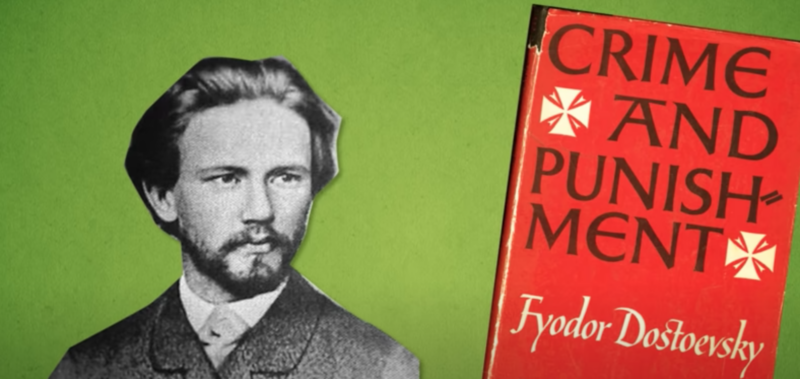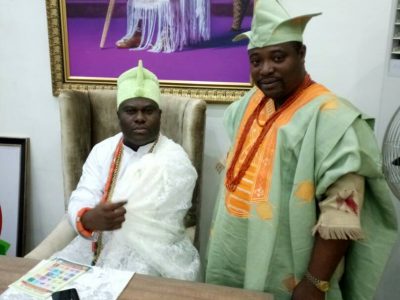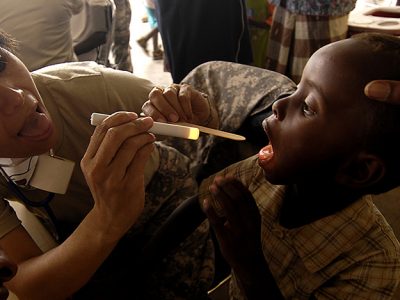原文掲載日2022年5月24日

ユーチューブチャンネル「スクール・オブ・ライフ」よりスクリーンショット
19世紀以来、ロシアは文学の分野で確固たる地位を築いてきた。チェーホフ、トルストイ、ドストエフスキー、さらに詩人のプーシキン、アフマートヴァ、ツヴェターエワ、ブロツキーは世界中で広く読まれ、翻訳され、研究されてきた。彼らはロシア文化の象徴であるとも言われている。一方でロシアのウクライナ侵攻から100日あまりが経ち、ロシア文化を排斥する声が高まる中で一つの標的にもされている。
グローバル・ボイスはアニー・ココボボ氏にインタビューし、この排斥の動きの高まりについて話を聞いた。ココボボ氏はロシア文学とロシア文化の研究者で、カンサス大学スラブ・ユーラシア言語文学科で教鞭をとる准教授であり学科長も務めている。

アニー・ココボボ准教授。許可を得て掲載
What I’ve witnessed since the Russian invasion of Ukraine is primarily an interest in not promoting Russian state-sponsored art. I have also heard and read of questions about ways in which Russian culture can occlude other aspects of the state-sponsored genocide perpetrated by the armies of the Russian Federation in Ukraine right now. I suspect these calls have to do with the fact that many ideas in Russian literature and culture have been weaponized and are used to legitimize the illegal actions of the Russian government in Ukraine.
I am not sure that not engaging with Russian ideas is really the solution to these problems. I think we should instead engage critically with these ideas. At the same time, it is also worth noting that when we consider literature and culture from the region, we do often privilege Russian literature or Russian ideas over other ideas in Eastern Europe and Eurasia, and I hope that this will change.
It is completely natural for Ukrainians to have a certain attitude toward Russian culture in this moment. I see these readings as the readings of individuals confronted by Russian genocide. I don’t blame the readers; I blame the genocide. Ultimately, the entity I hold most responsible for the impulse to cancel Russian culture is the Russian government.
ロシアのウクライナ侵攻以来私が目の当たりにしてきたのは、ロシア国家を後ろ盾にした芸術を奨励しない動きです。ロシア文化に関する疑問を聞いたり読んだりしたことがあります。つまり、ロシアは自国の文化を使って今まさにウクライナでロシア連邦軍が犯している国家ぐるみのジェノサイドの別の側面を隠蔽できるのかという疑問です。このような疑問が起こるのは、ロシア文学やロシア文化が持つ価値観の多くが戦いの道具にされてきて、ウクライナでのロシア政府の非合法な行動を正当化するために使われていることに関係があると思います。
ロシア的理念に関わらないことが、これらの問題に対する真の解決になるのかよくわかりません。ただ批判的に対処すべきだと考えます。同時に私たちがこの地域の文学や文化を考えるとき、他の東ヨーロッパやユーラシアの思想より、ロシア文学やロシアの思想を優遇しがちであることに関心を持つべきです。私はそれが変わることを望んでいます。
今の状況下でウクライナの人々が、ロシア文化に何等かの反応を示すことは全く当然です。これらは、ロシアのジェノサイドに直面したひとりひとりの解釈であると思っています。私は読者を非難するつもりはありません。ジェノサイドを非難しているのです。結局、ロシア文化排斥の衝動的な動きが出ることに最も責任があるのはロシア政府です。
実際にこれまでの異なる政府―帝政ロシア、ソビエト連邦、現代ロシア―は、自分たちの文化は本質的に専制的なのものと受け止め、ロシア文化に反映される植民地主義について疑問視することはまれであった。ココボボ氏はロシア政府に脱植民地化を進める何らかの動機があったとしても、実際にそうすることはほとんどなかったと見ている。さらに代議制についても重要な問題提起をしている。
Since I’m not sure that Russia has had a properly representational government in recent memory, I do not know what we mean when we say Russia; there are many Russias. I think some of these Russias are seeking to decolonize themselves and we have seen separatist sentiment in Siberia and other regions.
最近の情勢を見ていると、ロシアが適切な代議制をとっている国であると確信できません。私たちが「ロシア」と言うとき、いろいろなロシアがあり、それが何を意味しているかわからないのです。独立を模索しているシベリアなどの地域では分離主義的な感情も見られました。
ココボボ氏の専攻のひとつはトルストイとドストエフスキーの研究であり、通称「トストエフスキー」と呼ばれている。両作家ともに小説からノンフィクションまで広範囲にわたる著作があり、ロシアとロシア文学の宿命と使命を主題にし、ヨーロッパ文化ともアジア文化とも言える立ち位置で、戦争や暴力に対する考えを表現した。2022年の戦争でウクライナとその文化が破壊され、ロシア文化の排除を求める声があるという状況である今、トルストイとドストエフスキーの文章にどうアプローチするかということで議論が起こっている。この問題について、すでに著述があるココボボ氏はこのように答える。
I think we have to be watchful of nationalism and a sense of Russian exceptionalism in Dostoevsky, and we should also consider how he depicts other cultures that are not Russian. I don’t personally believe that Dostoevsky would have supported this war, certainly not at the first news of innocent civilian casualties. But I think his other ideas about Russian greatness can be dangerously weaponized, and they have been. We should read them critically and seek out minority voices in his texts so that our students have a fuller picture of Dostoevsky. I also don’t think we should hide Dostoevsky’s unseemliness. I don’t consider Dostoevsky or Tolstoy so fragile that they cannot withstand deeper scrutiny of their more problematic ideas.
私たちはドストエフスキーのナショナリズムやロシア例外主義に気をつけなければと思います。そしてドストエフスキーがロシア以外の文化をどのように表現しているかも考える必要があります。私はドストエフスキーがこの戦争を支持しただろうとは個人的に思いません。罪のない一般市民が死傷したという最初の報道があった時は特にそうです。ロシアの偉大さについて彼が抱くこれ以外の価値観は危険なほどに武器化される可能性があり、実際にそうなっていると思います。学生たちが幅広くドストエフスキーの全体像をとらえるように、私たちは批判的に読み、彼の文章の中のマイノリティの声を見つけ出さなくてはいけません。私たちはドストエフスキーの不適切なところを隠す必要はないと考えます。ドストエフスキーもトルストイも、問題を含んだ彼らの思想に対する精査に太刀打ちできないほどもろいとは思いません。
ココボボ氏は立場の変化も指摘する。つまりトルストイは晩年平和主義者で、小説『ハジ・ムラート』の中でロシアの植民地主義について言及しているが、経歴の当初はそれと異なり知識人としてスタートしている。彼女はこう述べる。
In “Hadji Murat,” he critiques violence toward Poles, in what I consider to be a Tolstoyan retrospective on his own anti-Polish sentiment in “War and Peace” where he depicts Polish soldiers drowning due to what he perceives as their obsequious admiration for Napoleon. No doubt, the Polish rebellion of 1863 against Tsarist rule incited some of these sentiments for Tolstoy in the 1860s, but it is positive to see him go back and revise himself, finding his earlier ideas unacceptable. I think critical readings of Tolstoy often come through Tolstoy’s own self-criticism because he is not as stable ideologically as Dostoevsky; we see him rewriting and critiquing himself over the years.
『ハジ・ムラート』の中で、トルストイはポーランド人への暴力を批判しています。それは『戦争と平和』で語られた彼自身の反ポーランド思想をトルストイ的に振り返っていると思います。『戦争と平和』では、作者にはナポレオンへのこびへつらいとしか思えないものに溺れるポーランド人兵士を描いています。ロシア帝国の支配に対する1863年の一月蜂起に駆り立てられ、トルストイはこの作品を書いたのです。しかしトルストイが当初に立ち返り、自分のかつての考えは受け入れがたいと思い、自分自身を変えたことは評価すべきです。トルストイを批判的に読むことは、彼自身の自己批判にもつながると思います。トルストイが何年にもわたって書き直し、自分自身に批判的であったのは、彼がドストエフスキーのように確固としたイデオロギーを持たなかったからと言えるでしょう。
学問の世界にもある植民地主義を脱すること
アメリカでの研究傾向が、よりウクライナ研究にシフトするのではと尋ねた。世界的に言えることだが、これまでスラブ語圏の研究はロシア研究が優位であったが、ココボボ氏は、ウクライナがもっと興味の対象となるべきだと語る。
Russian simply enrolls more students than other languages, but I think these enrollment patterns are also part of a broader colonial history. We see similar things at play when we compare enrollments for Spanish versus the enrollments for indigenous languages in Latin America. When we think about decolonizing the field at large, I think it begins incrementally. It begins with integrating Ukrainian and Belarusian voices as Russophone or non-Russophone perspectives into content courses. Likewise, it behooves us to interrogate Russia’s imperial mission in how we present Russian culture to students, both by inserting perspectives that are normally erased, and by explaining Russia’s history of colonialism.
ロシア語は他の言語より多くの学生が履修登録をします。でもこの傾向は広義の植民地の歴史の一部でもあるのです。ラテンアメリカのスペイン語と先住民の言語についても同じことが言えます。学問の世界でも脱植民地化は、徐々に進んでいくでしょう。ウクライナ人やベラルーシ人の声をロシア語圏あるいは非ロシア語圏の視点として統合することから始まるのです。同じように私たちがロシア文化を学生たちに紹介する際に、普通は消されてしまう視点を入れることや植民地主義に関するロシアの歴史を解説することによって、ロシアの帝国主義的な使命を問い直す必要があります。
彼女は学問の世界ではゲーム理論は成り立たないと締めくくった。
I’m being flippant now, but truly: I hereby offer our online Ukrainian course at the University of Kansas to all my colleagues as a resource. Sometimes advanced Russian students are the best candidates for this kind of a course. It is not an either/or proposition, there’s no need to get territorial around this. I don’t think that Russian Studies will meet an untimely demise if we make space in our units for Ukrainian Studies and look at Eastern/Central Europe and Eurasia more holistically as a region comprised of a range of identities and cultures, each rich and worth studying in their own right.
不真面目な言い方かもしれませんが、そう思います。また、カンサス大学のオンライン・ウクライナ・コースを、私はすべての研究者に向け教材として提供しています。ロシア研究専攻の上級生は、この種のコースに最適な場合もあります。これは二者択一の提案ではなく、これらに関して縄張りをはる必要もありません。もしウクライナ研究の場がつくられ、東・中央ヨーロッパやユーラシアを、それぞれが独自性や文化を持ち、豊かで学ぶ価値ある地域だと人々がみなしたとしても、だからといってロシア研究が時ならぬ終焉を迎えることはないと思っています。

Image courtesy of Giovana Fleck.







